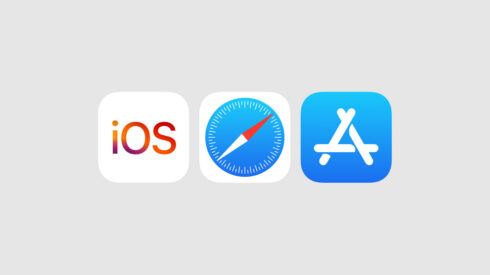
Apple has announced significant updates to iOS, Safari and the App Store, specifically for the European Union, in response to the Digital Markets Act (DMA).
These updates include more than 600 new APIs, improved app analytics, support for alternative browser engines, and more options for app payment processing and app distribution for iOS. These changes aim to maintain the high quality and security standards that users in the EU have come to expect from Apple, while adapting to the new regulatory environment, Apple says in blog post which includes more details about each of the changes and new features.
However, the introduction of new payment methods and app downloads on iOS is raising concerns about increased risks from malware, scams, fraud, and other security and privacy threats. To mitigate these risks, Apple is implementing new safeguards. This includes notarization for iOS apps, requiring authorization for marketplace developers, and discovering alternative payment methods. Despite these safeguards, Apple acknowledges that some risks will still exist for users in the EU.
Developers interested in these changes can access detailed information and support on the Apple Developer Support page. In addition, they have the opportunity to start experimenting with these new capabilities through the iOS 17.4 beta version, which is already available. The rollout of these new features and capabilities should begin in March 2024 and will be available to users in all 27 EU countries.
“The changes we are announcing today are in line with the requirements of the Digital Markets Act in the European Union, while at the same time helping to protect EU users from the inevitable increased privacy and security threats this regulation brings. Our priority remains creating the best, most secure experience possible for our users in the EU and around the world,” said Phil Schiller, Apple Fellow. “Developers can now learn about new tools and terms available for alternative app distribution and alternative payment processing, new capabilities for alternative browsers and contactless payments, and more. Importantly, developers can choose to remain under the same business terms that exist today if they wish.”
Apple is introducing frameworks and APIs that allow these alternative marketplaces to be created, allowing marketplace developers to manage app installs and updates.
Apple is also expanding its capabilities for developing browser applications by introducing frameworks and APIs for alternative browser engines. The move allows developers to use different browser engines, rather than being limited to WebKit, for browser apps and in-app browsing experiences. To improve interoperability, Apple also establishes an Interoperability Request Form. This platform will allow developers to request additional compatibility with iPhone and iOS hardware and software features, promoting a more versatile developer-friendly environment in the EU.
As announced by the European Commission, Apple is also sharing DMA-compliant changes affecting contactless payments. These include new APIs that allow developers to use NFC technology in their banking and wallet applications across the European Economic Area. And in the EU, Apple is introducing new controls that allow users to choose a third-party contactless payment app — or an alternative app market — as their default.